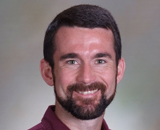 The newer the better—or so it seems in much of commercialized medicine. At least in “developed” or “higher income” countries, medical innovation seems inextricably tied with commercial endeavors, which often translate to more expensive ways to do the same things (sometimes, even if we’re not sure the outcomes are truly better)
The newer the better—or so it seems in much of commercialized medicine. At least in “developed” or “higher income” countries, medical innovation seems inextricably tied with commercial endeavors, which often translate to more expensive ways to do the same things (sometimes, even if we’re not sure the outcomes are truly better)
The Bulletin of the World Health Organization highlighted a different take on innovation in January, describing how “frugal innovation” is helping drive both care and economic development in “emerging economies.”
However, I think another area of “innovation” that needs attention, investigation, and promotion, is further developing the knowledge base as to when it is best to do nothing (which requires improving our knowledge of the natural course of diseases) or to take a less invasive approach. Some examples (admittedly maybe USA-centric, but that’s where I’m practicing…):
- Mentholated ointment may be a good treatment for onychomycosis—good to know, given the cost and potential side effects of standard antifungals.
- Bandaging alone appears better than bandaging plus suturing for smaller hand lacerations.
- Vagal maneuvers are effective in terminating about one quarter of cases of spontaneous sumpraventricular tachycardia—good to know if cardiac medications are not readily available.
- Postoperative ileus after colectomy may be helped by coffee or chewing gum.
- Mean duration of cough for an acute respiratory illness is 17 days (knowing the natural course can help frame expectations for resolution and when re-evaluation is or is not needed).
Although it is important for all (medical professionals and the general public) to be informed as to what “medical” things work (ie, medications and chemicals, or interventions, surgeries, and procedures), it is just as important, and perhaps more so, for all to be informed when it is best to do nothing, or when something less expensive or invasive may be equivalent or better, or when it is just a matter of giving a benign condition time to run its course.
How to develop this knowledge base, is an entirely different question!
DECLARATION OF INTERESTS:
“This post is a revised version of thoughts posted to the HIFA2015 email forum. I declare that that I have read and understood the BMJ Group policy on declaration of interests and I have no relevant interests to declare.”
William E Cayley Jr practises at the Augusta Family Medicine Clinic, teaches at the Eau Claire Family Medicine Residency, and is a professor at the University of Wisconsin, Department of Family Medicine.
